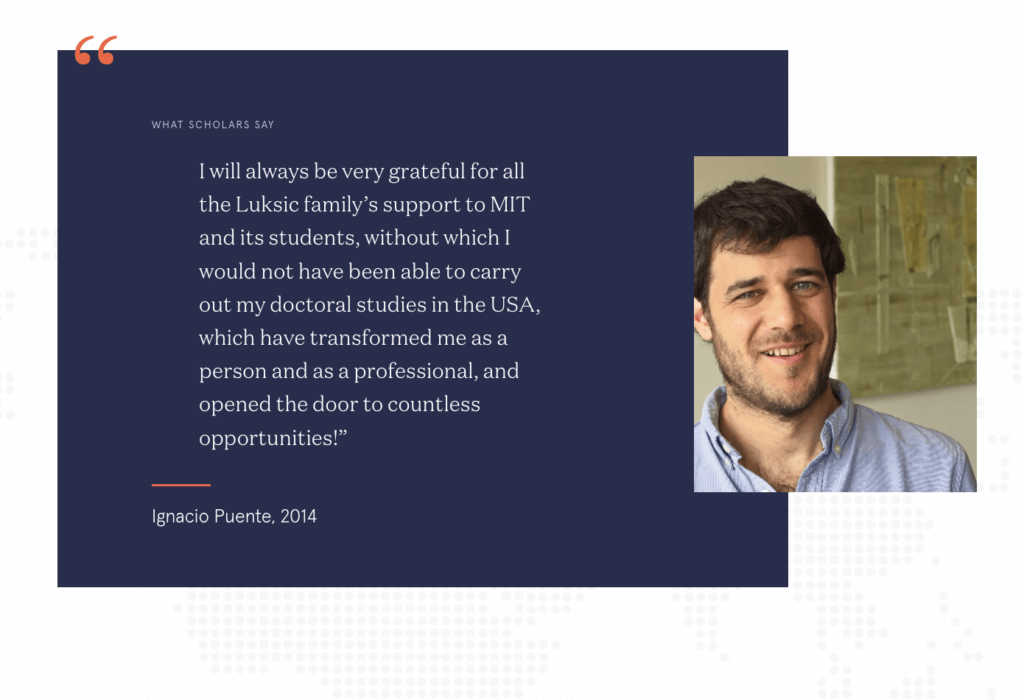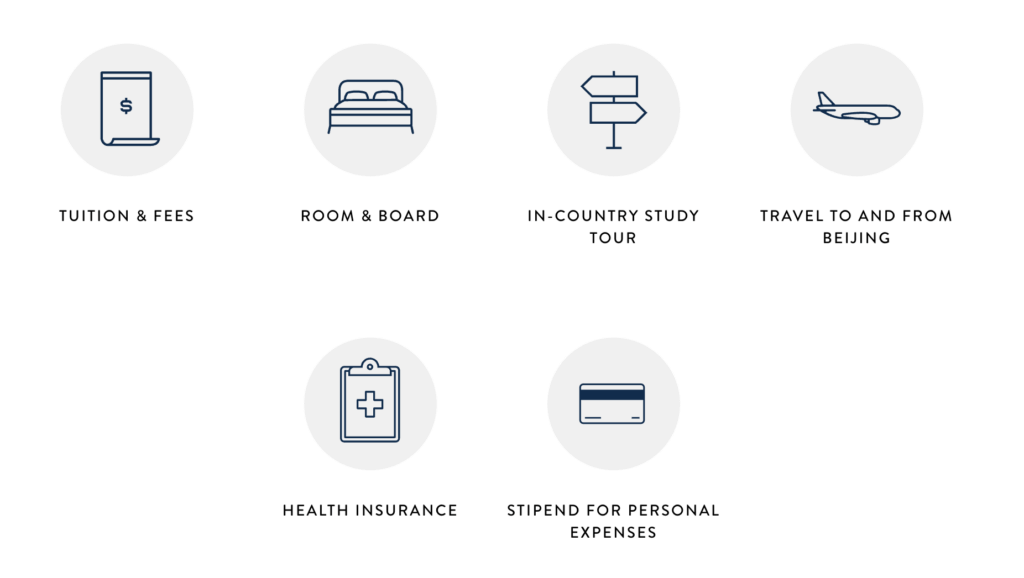Over 90 people representing more than 11 universities throughout Chile attended the Schwarzman Scholars-Luksic Scholars Foundation’s information session to learn more about The Luksic Fellowship of the Schwarzman Scholars program. Luksic Scholars, Felipe Flores (2020) and Hugo Wood (2019), joined the event to share their experiences.
Last month, the Luksic Scholars Foundation in collaboration with Schwarzman Scholars held a virtual information session to share more on The Luksic Fellowship of the Schwarzman Scholars program: an annual funding designation for one Chilean or Latin American candidate for the Master’s program at Schwarzman College at Tsinghua University.
The event included welcoming remarks from the Luksic Scholars Foundation followed by an informative presentation by Schwarzman Scholars. The main part of the webinar was dedicated to an open-ended conversation between Luksic Scholars, Felipe Flores (Class of 2020) and Hugo Wood (Class of 2019) who shared their program experience with the more than 90 interested candidates. The webinar concluded with a Q&A session.
Below, you will find a snippet of Felipe and Hugo’s experiences in the program, alongside their advice for those considering applying:
Why did you decide to apply?
→ Felipe: “I found this program to be a great way to see where my career path could go as when I graduated college I wasn’t sure what my next step was going to be. I’ve also always been curious about China so the Chinese aspect of the program drew me in.”
→ Hugo: “Panama recently celebrated their 5th anniversary of diplomatic ties with China and I had been working in the public sector before this and therefore, essentially in the process of making that happen, and as a spokesperson, I realized that if I wanted to keep being involved in Panamanian-Chinese ties I needed to go to China.”
What was the language immersion component like?
→ Felipe: “You’re supported via the program the entire way through the language-learning experience and you take Mandarin classes which definitely help. With a basic knowledge of Chinese, I feel you can get around, even in the first semester.
→ Hugo: “The [Schwarzman Scholars] program is key in this component because they give you tools so you feel confident before you arrive in Beijing. Once you do arrive, you start to take formal language classes.”
Can you describe the academic part of the program?
→ Felipe: “The first thing you do every morning is go to Chinese class. In regards to the rest of your schedule, you choose how you would like your schedule to be and adapt it to your interests. You also take courses outside of the Schwarzman College campus and that is- you take courses at Tsinghua University and that’s where you get to meet Chinese classmates.
→ Hugo: “Tsinghua University is the alma mater of the previous two presidents of China so that itself gives you a sense of the academic rigor. Schwarzman is unique in the sense that you have a core curriculum, but aside from that, you can craft how you want the experience to be.”
What was life on campus like?
→ Felipe: “In terms of the housing, you live in a building with the rest of the Scholars which is a great experience in itself and it lends itself to creating great bonds with your peers from whom you’ll learn a lot. Also, the program itself attracts people who love China so you already have something in common with your peers. As for traveling, you’re encouraged to explore and venture out.”
→ Hugo: “I loved interacting with the other Scholars and also with the special guests who visited campus to give the keynote speeches. In terms of extracurricular activities, I was part of the debate team and the basketball team. I was also able to travel around China with my peers, discovering the history and culture of China.”
What advice would you give to those looking to apply?
→ Felipe: “Give yourself plenty of time to apply, fill out your application early, and have people revise it and give you feedback. If you’re planning on applying for the next cohort, start applying today.”
→ Hugo: “Be confident in your statement of purpose and try to share that in a way that really shows who you are. Be genuine and authentic – don’t hesitate to showcase your true passions in your application.”
Want more information on the Schwarzman Scholars program? Please click here.
APPLY TODAY. Interested individuals must apply directly to Schwarzman Scholars. The application cycle for the Class of 2024 opened on 13th April 2022 and will run until 20th September 2022. Candidates selected during this cycle will participate in the program from August 2023 until July 2024.
More about Felipe and Hugo:
Felipe Flores:
Luksic Scholar, Master in Global Affairs, Schwarzman College, Class of 2020
Felipe Flores has a Bachelor’s Degree in Human Developmental and Regenerative Biology & Secondary in Physics from Harvard University. His interests include the healthcare, pharmaceutical, and biomedical industries to improve regulation and research practices. He is currently a medical student in Chile.
Hugo Wood:
Luksic Scholar, Master in Global Affairs, Schwarzman College, Class of 2019
Hugo Wood has a Master’s in Law and International Development from Tulane University and a Master’s in Public Policy from The London School of Economics. He is currently a Government Affairs & Policy Senior Manager of Venezuela, Central America & Caribbean for Johnson & Johnson and an Associate Professor of Behavioral Economics and Political Science at Universidad Católica Santa María La Antigua.



